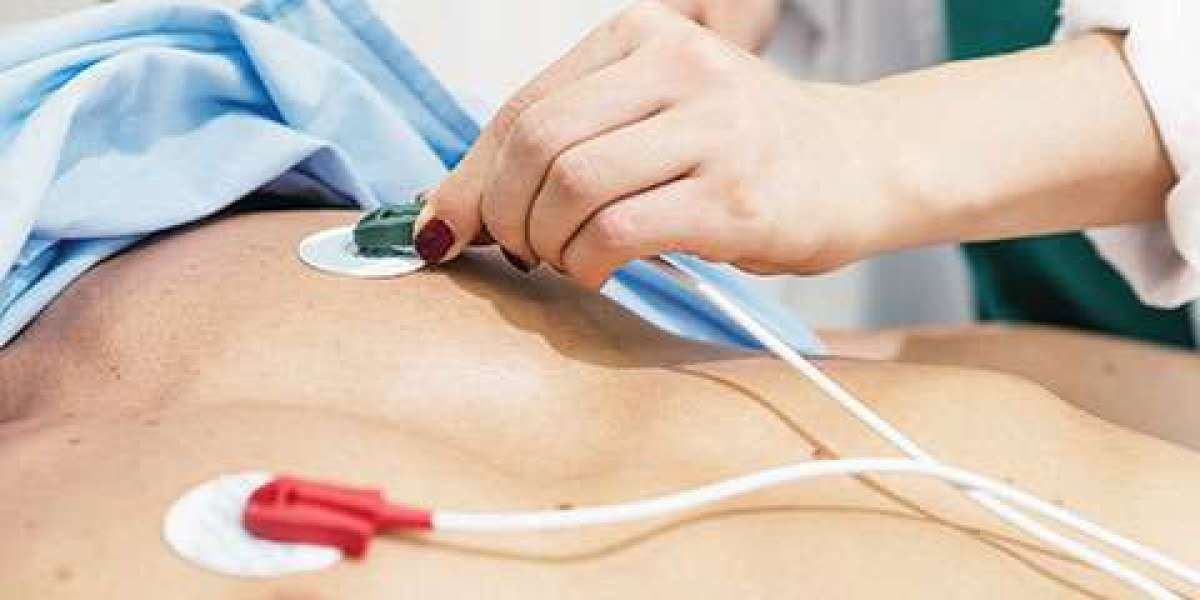When it comes to monitoring the health of your heart, an ECG, or electrocardiogram, is one of the most essential diagnostic tools available. Whether you’re going for a routine check-up or experiencing specific heart-related symptoms, an ECG procedure can provide vital information about your heart’s condition.
But what exactly is an ECG? How does it work? And why is it so important for diagnosing heart issues? In this comprehensive guide, we will explore everything you need to know about ECGs, from what they measure to when and why they are performed, and what to expect during the procedure.
What is an ECG?
An ECG test, also known as an electrocardiogram, is a medical procedure used to measure the electrical activity of the heart. The heart has an electrical system that controls the rhythm and speed of your heartbeat, and an ECG can record these electrical signals as they travel through the heart. This test provides a graphical representation of the heart’s electrical activity, allowing healthcare providers to monitor the heart's rhythm, detect abnormalities, and diagnose various heart conditions.
The heart has four chambers: two atria (upper chambers) and two ventricles (lower chambers). These chambers work in sync, contracting and relaxing to pump blood throughout the body. The electrical impulses generated by the heart stimulate the contraction of these chambers. The ECG captures these electrical impulses, which are measured in the form of waves or spikes on a graph, helping doctors understand how well your heart is functioning.
How Does an ECG Work?
An ECG test works by placing small electrodes (sticky pads) on the skin of your chest, arms, and legs. These electrodes are connected to an ECG machine, which records the electrical impulses of your heart. The electrodes do not generate electricity; rather, they detect the natural electrical signals produced by your heart as it beats.
The machine then records the heart’s electrical signals as a series of waves on a graph. These waves are labelled P, Q, R, S, and T. Each wave corresponds to a specific part of the heart’s electrical cycle:
- P wave: This represents the electrical activity that triggers the contraction of the atria (the heart's upper chambers).
- QRS complex: This reflects the electrical activity that causes the ventricles (lower chambers) to contract. It’s the most significant part of the ECG waveform.
- T wave: This shows the electrical activity associated with the relaxation of the ventricles.
- PR interval: This represents the time it takes for the electrical signal to travel from the atria to the ventricles.
- QT interval: This measures the time from the start of ventricular contraction to the end of ventricular relaxation.
By analysing the shape, size, and timing of these waves, doctors can determine if there are any irregularities in your heart’s rhythm or other signs of heart disease.
Why is an ECG Test Performed?
An ECG procedure is primarily used to assess the health of your heart, and it can help doctors diagnose a variety of conditions. Here are some common reasons for an ECG:
Checking for Arrhythmias
An ECG is often used to detect arrhythmias, which are abnormal heart rhythms. These can include conditions such as:
- Atrial fibrillation (AFib): An irregular, often rapid heart rhythm that can increase the risk of stroke.
- Bradycardia: A slower-than-normal heart rate.
- Tachycardia: An abnormally fast heart rate.
By observing the rhythm and pattern of the waves on the ECG, doctors can identify if there is any abnormality in how the heart is beating.
Detecting Heart Attacks
An ECG is a critical tool in diagnosing heart attacks. During a heart attack, the heart muscle is deprived of oxygen, which can cause changes in the electrical activity of the heart. An ECG procedure can help doctors determine if there has been damage to the heart muscle, as certain patterns or changes in the ECG waves may indicate that a heart attack has occurred or is in progress.
Evaluating Heart Disease and Heart Function
If you have symptoms like chest pain, dizziness, shortness of breath, or fatigue, an ECG procedure can help doctors assess the condition of your heart and determine if there are any underlying heart diseases, such as coronary artery disease, heart failure, or structural heart problems.
Preoperative Assessment
Before undergoing surgery, doctors may recommend an ECG procedure to evaluate your heart’s health. This is especially common for people over the age of 40 or those who have existing heart conditions. The test ensures that your heart is in good condition for surgery and anaesthesia.
Monitoring Ongoing Heart Conditions
If you already have a known heart condition, such as heart disease or arrhythmia, your doctor may recommend regular ECG tests to monitor your heart’s condition over time. This allows for early detection of any changes or complications.
What Are the Different Types of ECG?
There are different types of ECG tests, depending on the situation and the information required. These include:
Resting ECG
A resting ECG is the most common type of test. It is typically performed while you are lying down and relaxed. The electrodes are attached to your skin, and the machine records the electrical signals from your heart at rest. It usually takes around 5 to 10 minutes.
Stress ECG (Exercise ECG)
A stress ECG is performed while you are exercising on a treadmill or stationary bike. This test helps doctors assess how well your heart performs during physical activity. It can identify problems that may not be apparent when the heart is at rest, such as exercise-induced arrhythmias or insufficient blood flow to the heart.
Holter Monitoring
A Holter monitor is a portable ECG device that continuously records your heart’s activity for 24 to 48 hours. It is worn on a belt or shoulder strap and has electrodes that are attached to your chest. This test is useful for detecting intermittent arrhythmias or irregular heart rhythms that may not be captured during a short resting ECG.
Event Monitor
An event monitor is similar to a Holter monitor, but it is worn for a longer period, typically 30 days. It’s used to track irregular heart rhythms that occur infrequently. Unlike the Holter monitor, the event monitor records your heart’s electrical activity only when you activate it or when an abnormal rhythm is detected.
What to Expect During an ECG Test
An ECG procedure is non-invasive, quick, and painless. Here’s what you can expect during the procedure:
- Preparation: You will be asked to remove your clothing from the waist up to expose your chest. The technician will clean the areas where the electrodes will be attached.
- Electrode Placement: The technician will place the electrodes on your chest, arms, and legs. These electrodes are small, sticky patches that will stay in place for the duration of the test.
- Recording: Once the electrodes are placed, you will be asked to lie still and relax while the ECG machine records your heart’s electrical activity. The procedure typically lasts about 5 to 10 minutes.
- Post-Test: After the test, the electrodes will be removed, and you can return to your normal activities. If you had a stress ECG or Holter monitoring, there may be additional instructions.
Conclusion: ECGs and Your Heart Health
An ECG test is a vital tool in diagnosing and monitoring heart conditions. Whether you’re experiencing symptoms like chest pain, dizziness, or irregular heartbeats, or simply undergoing a routine check-up, an ECG can help your healthcare provider gain valuable insights into your heart's health.
If you have heart disease or are at risk, regular ECGs can help detect issues early, enabling you to take proactive steps to manage your health. Moreover, for added protection and peace of mind, having reliable health insurance is crucial, especially when it comes to the cost of diagnostic tests and treatments.
Niva Bupa Health Insurance offers comprehensive coverage for a wide range of medical procedures, including ECG tests and other heart health-related services. By investing in a robust health insurance plan, you can safeguard your health and ensure that you receive the best possible care when you need it most.
Take charge of your health today with Niva Bupa Health Insurance!


